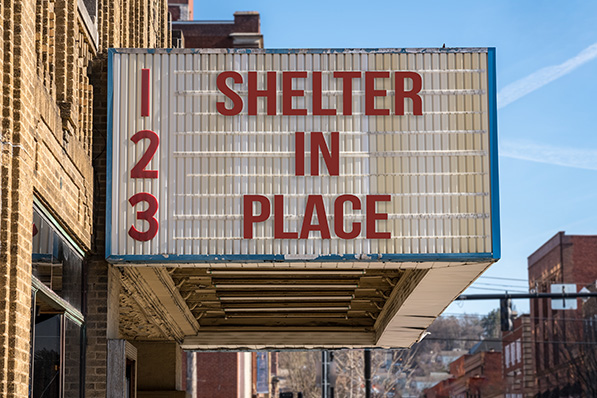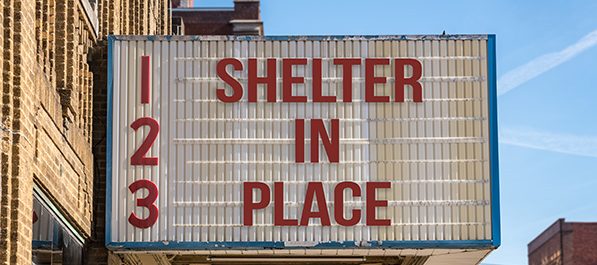
As previously reported, in March, several California counties issued “shelter in place” orders as an effort to slow the spread of COVID-19, commonly known as the coronavirus — but that turned out to be just the beginning. On March 19, 2020, Governor Newsom issued a statewide shelter-in-place order that is “in effect until further notice.” Since then, several other cities and counties throughout California have implemented shelter-in-place orders, while other localities have revised theirs — extending the time period or tightening restrictions, for example.
Several local shelter-in-place orders were originally set to expire on April 7, 2020, but they have since been updated to extend the time in which residents must stay at home, only leaving to engage in “essential activities.”
For example, on April 7, 2020, Sacramento County issued a revised shelter-in-place order, extending the order for another three weeks, until May 1, 2020. In Sacramento County’s revised order, “Essential Businesses” are now required to implement social distancing protocols, and, among other expanded restrictions for residents, essential business activities are clarified and limited.
Under Sacramento County’s revised public health order, essential businesses, while encouraged to remain open, are subject to certain requirements:
- They must maximize the number of employees who work from home and may only assign those employees who cannot perform their job duties from home to work outside the home;
- They must prepare, post and implement a social distancing protocol at each of their facilities at which they are maintaining operations;
- Businesses that include an essential business component alongside non-essential components, to the extent feasible, must scale down their operations to the essential business components only (mixed retail businesses that are otherwise allowed to operate under the order may continue to stock and sell non-essential products); and
- Comply with social distancing requirements, including but not limited to, when any customers are standing in line.
On March 31, 2020, San Francisco and several other Bay Area localities (Santa Clara County, San Mateo County, Marin County, Contra Costa County, Alameda County, Santa Cruz County and the City of Berkeley) also extended their orders until May 3, 2020, and required that as of April 2, 2020, essential businesses prepare and post a social distancing protocol for each of their locations. The orders also set additional restrictions for residents aimed at maximizing social distancing and reducing the spread of COVID-19. San Francisco has also provided a Frequently Asked Questions document to outline the most recent changes in the order.
San Diego County’s Health Officer order was amended to require that essential businesses prepare and post, no later than April 7, 2020, a “Social Distancing and Sanitation Protocol” for each of their facilities. Additionally, effective April 4, 2020, all employees who may have contact with the public in any grocery store, pharmacy/drug store, gas station, restaurant or other business establishment that serves food is mandated to wear a cloth face covering.
Riverside County recently amended its order on April 6, 2020, to require all persons, including essential workers, to wear face coverings such as scarves, bandanas or other fabric face coverings. The order discourages individuals and essential workers from using Personal Protective Equipment (PPE), such as N95 masks, for non-medical reasons.
Other counties are strongly recommending the use of face coverings, based on the U.S. Centers for Disease Control’s recent recommendation, and the California Department of Public Health guidance. However, those recommendations could soon turn into requirements as the number of COVID-19 cases increases.
Given the quick pace at which things are evolving, employers deemed essential are strongly encouraged to regularly check with their local health departments at the city and county levels to see what changes are being made to requirements for essential businesses that are allowed to remain open throughout this pandemic.
LA Mayor Signs COVID-19-Related Emergency Orders
Last week, the Los Angeles City Council approved a local ordinance to provide supplemental paid sick leave to workers affected by COVID-19. Mayor Eric Garcetti had until April 7, 2020, to sign the ordinance, but instead, he issued an emergency order, making some key changes to the ordinance that was approved by City Council on March 27, 2020. HRWatchdog will cover, in detail, the new Los Angeles Supplemental Sick Leave Order and Worker Protection Order tomorrow!
Bianca Saad, Employment Law Subject Matter Expert, CalChamber
Visit the CalChamber Coronavirus (COVID-19) webpage for more COVID-19-related federal, state and local resources, including California Counties Health and Stay-at-Home Order pages.
Access additional COVID-19-related HRWatchdog blogs.



